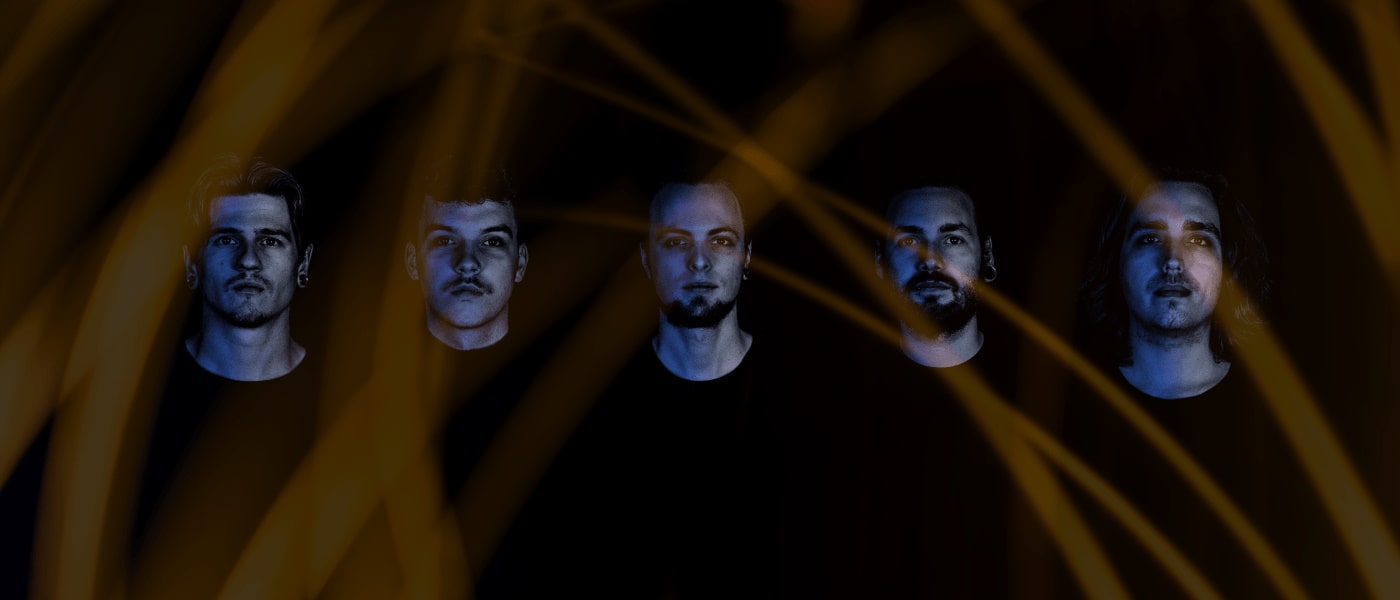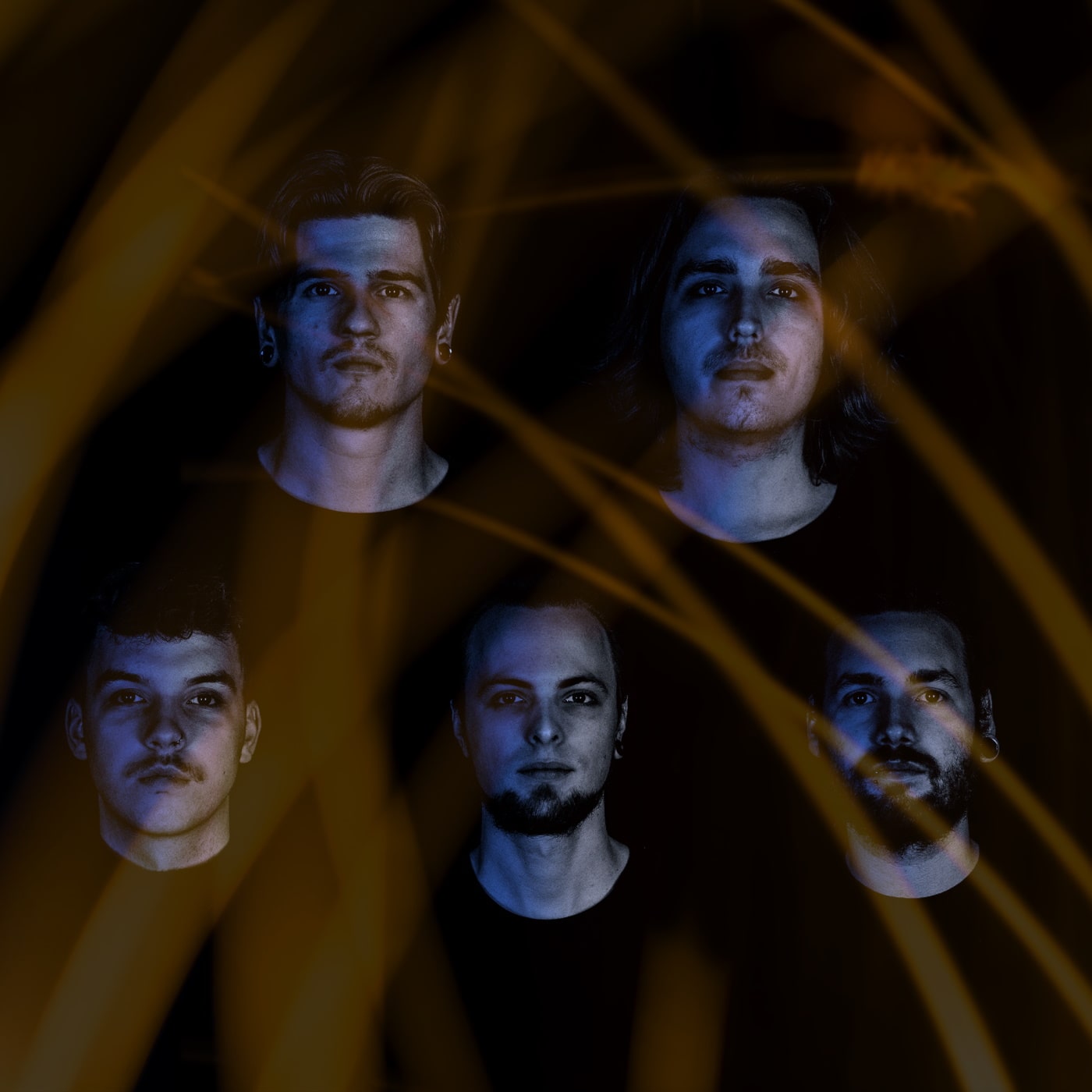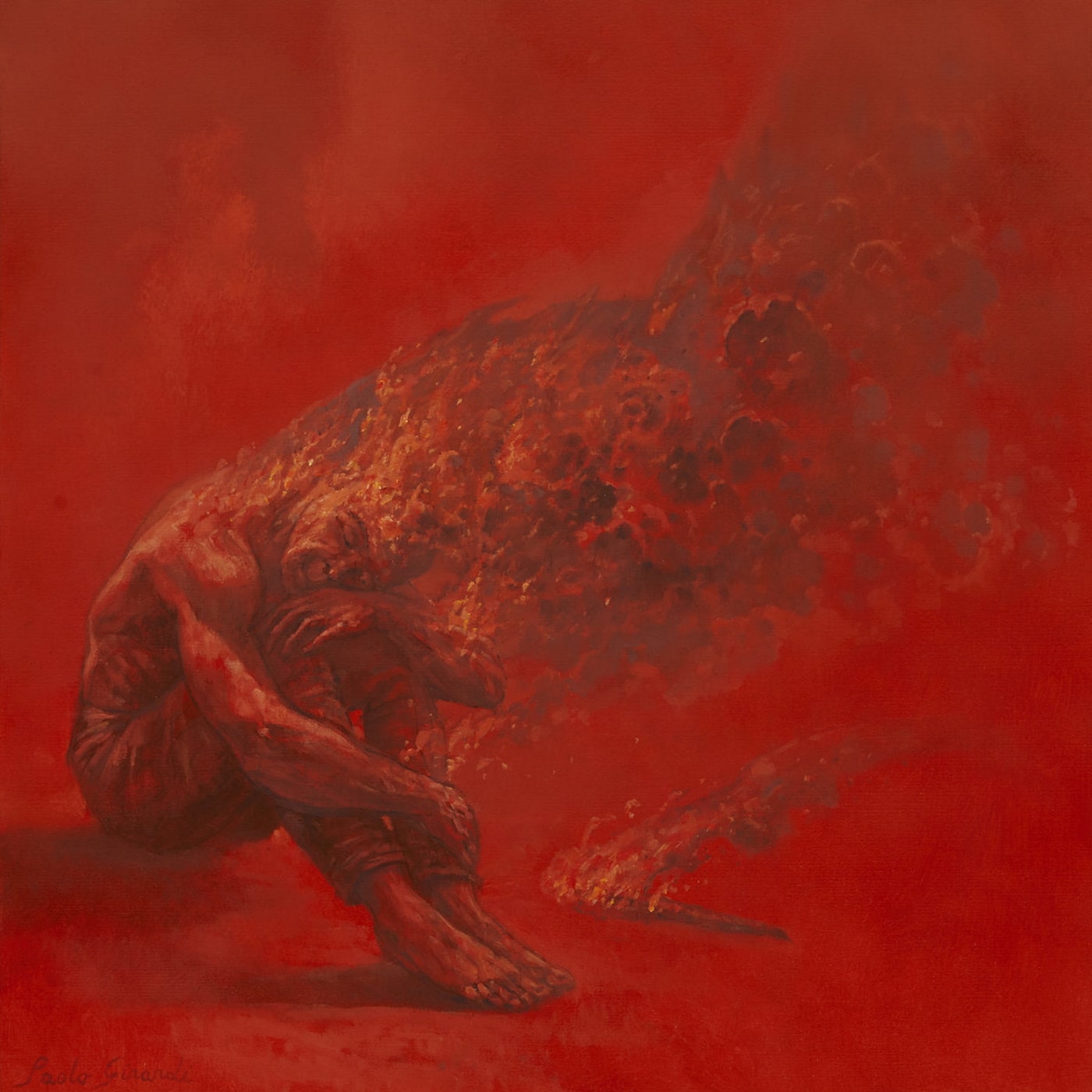MONOSPHERE‘s astounding DIY-done animation music videos for “The Puppeteer” and “I Am In Control, Pt. I” opened the narrative of the same-titled concept album. Telling the story of a fictional character and his partner. In “The Marionette”, the character decides to kill his partner and burn her down in the woods, which is shown in the narrative of the video. The act itself is a result of hate, mistrust and human failure and is the climax of “The Puppeteer”’s story line. “The Marionette“ is an intense journey through depressing atmospheres and mesmerizing soundscapes full of emotions that finish the narrative storyline of “The Puppeteer”. The song itself is the calmest we’ve done so far, while the video closes the narrative that tells our album’s story.
The song itself is calm and atmospheric, opening up with different layers of synths and soundscapes, such as a fire burning. Mostly clean, Monosphere build up on a groove and a post-metal vibe that might fit the sound of Culf Of Luna and The Ocean at some times, only to end in an abrasive doom section inspired by Amenra. The repeating riffs make this song an impactful and disturbing listen that breaks free from any chains and shows the band’s ability to play with different genres.
“The Marionette“ isn’t actually the last song of the album, but the last song of the album’s first half, which narrates the story line from the protagonists perspective. A perspective full of hatred, suffering and evil.
“This song is dedicated to our post-metal and doom influences and our love for a dense atmopshere.” – says the band. “It tells the ending section of our concept album, where the protagonist kills and burns his wife, which is reflected in the animated music video.”
In direct comparison to the metalcore-driven first single “The Puppeteer” and the tech/prog death sounding second single “I Am In Control, Pt. I”, Monosphere now focus on an emotional level that hasn’t been as present before, as drummer Rodney Fuchs comments.
“’The Marionette’ is by far the most emotional track on the album and is both: a satisfying, but also disturbing end to a dramatic story.”
“A mix of black metal, tech and prog metal“ – ShoutLoud
“Hammering guitar riffs and explosive rhythms.“– Visions Magazin
“Do you like any subgenre of metal? Monosphere can do a bunch of them!“ – Toilet Ov Hell
Founded out of progressive deathcore act Lost Without Direction, Monosphere quickly became a name with their melodic hardcore sound. After some lineup changes and a shift to technical metalcore the band started working on “The Puppeteer” – an album in between post metal, progressive metal and mathcore. It’s no wonder that some journalists call the sound of Monosphere something in between Between The Buried And Me, Rolo Tomassi and Cult Of Luna, as all of these bands are key influences to the sound of Monosphere.
The album was crafted in the summer of 2018 and is based on the idea of writing a prog metal album that uses common trademarks, while pushing the genres boundaries. In between djenty metalcore, post rock, black metal and tech death, Monosphere have plenty of space for different inspirations. Such as influences from classical music, neoclassical and minimal music where Monosphere adapted many techniques and put them into a post-modern metal sound to craft a unique metal opus.
The musical narrative of the concept album is supported by the lyrical aspect and works like a dark thriller. A thriller that you have to rewatch multiple times to finally understand what “The Puppeteer” really is about.
Mixed by Phil Kaase (The Mixing Mine) and mastered by Brad Boatright (Audiosiege, Rolo Tomassi, Stranger Things OST etc.), the album fits the common standard and expands on an equally worthy visual and conceptual aesthetic. Beside the both engineers, Monosphere live a true DIY-ethic and proof their unrestingly ambition, as everything else was done by themselves.
Accompanying the release, composer Rodney Fuchs wrote an essay that illuminates the album’s parameters from a musicological point of view and shows in music theoretical manner how “The Puppeteer” can be seen as a concept album and which thoughts lie behind the composition of this debut record.















